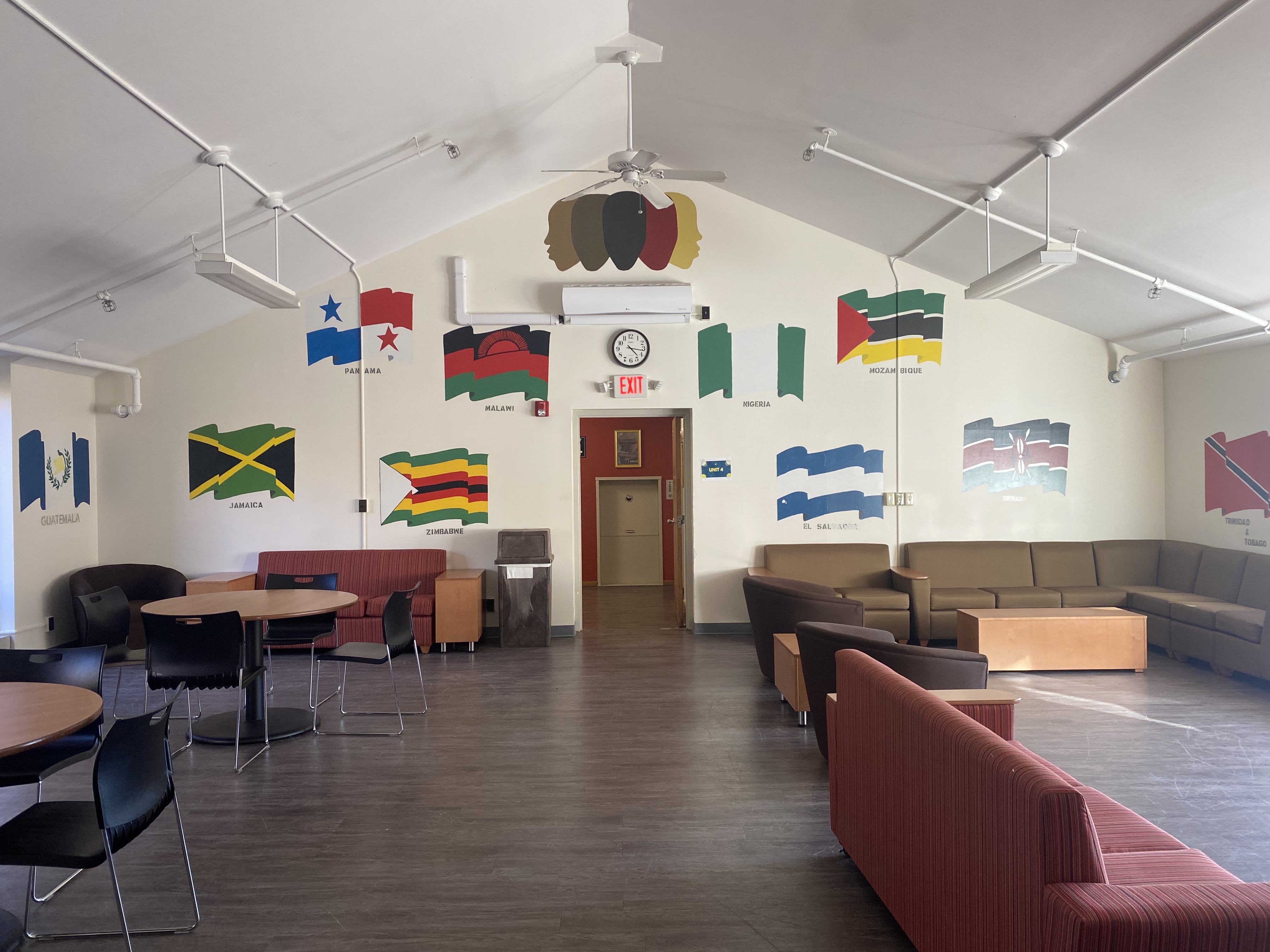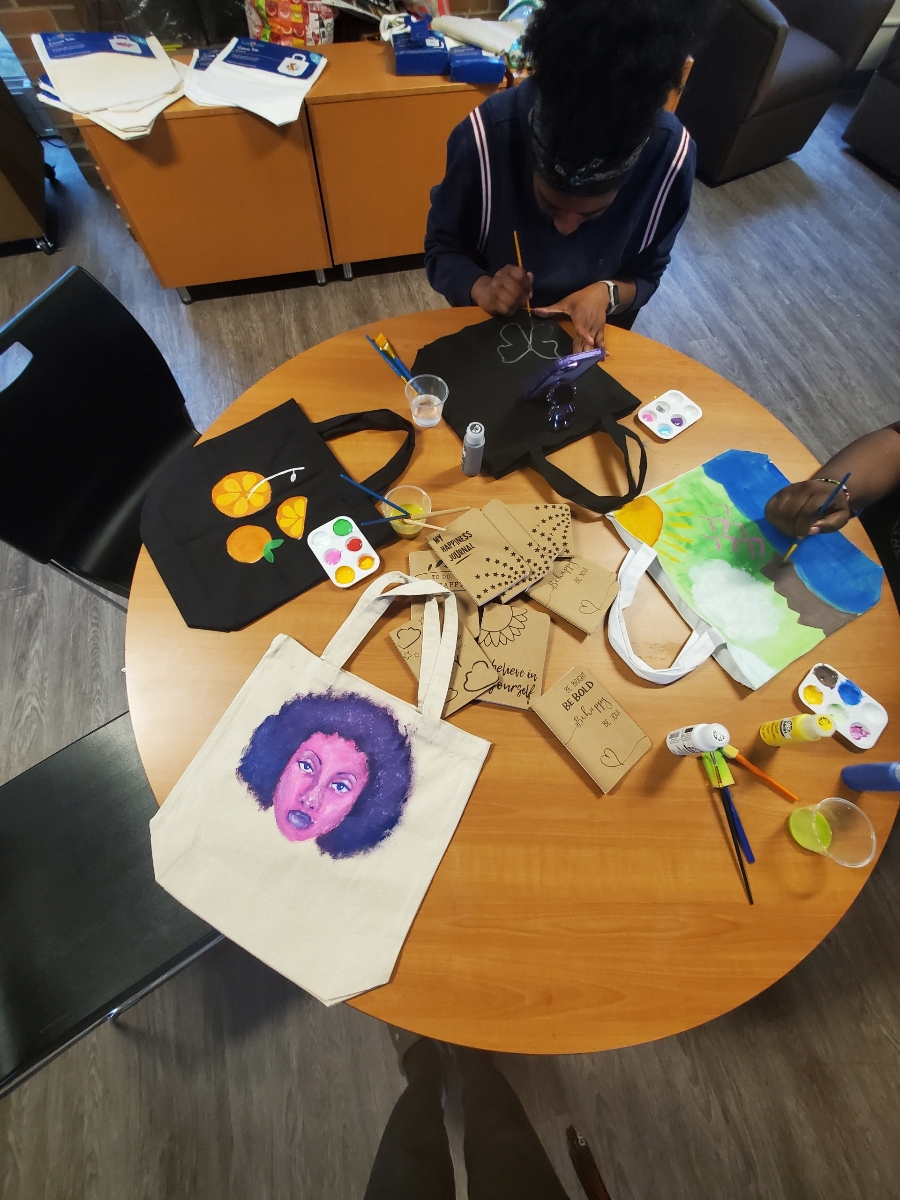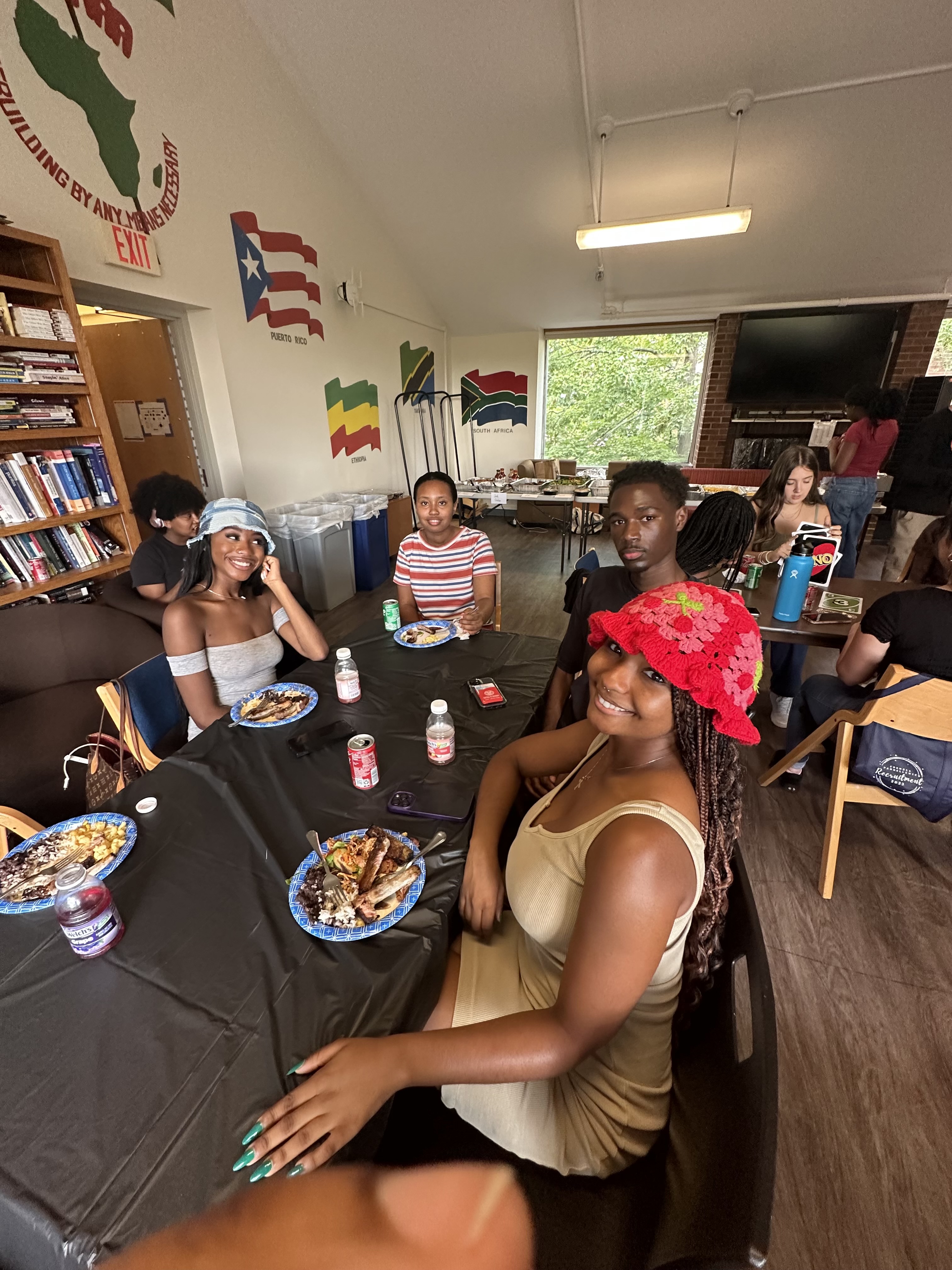Students explore culture, identity and community in Ujamaa Program House

By Kelly Kuehn, Student & Campus Life
Kendahl Wesley ’25 was heading into his third year at Cornell when he became an RA in the Ujamaa Program House. The psychology and Africana studies major was familiar with Ujamaa already, having attended events in its lounge and spending time with friends who lived there.
As Wesley moved in, he noticed the flags of countries impacted by the African diaspora painted on the main lounge’s walls. There’s also a mural featuring a quote from Kwame Ture, a civil rights activist and prominent figure within the Pan-African movement:
“Afrikan students have a responsibility to gather the truth of their people…in order for a student-led struggle to succeed, its principles must be just…because justice will win out in the end.”
Wesley admired what the vibrant art, rich in culture and history, represented in his new community and knew he was in a special place.
“You can tell people made sure the art had meaning to it and spoke to the experiences of Ujamaa residents and its origins,” Wesley says.
Ujamaa’s origins and impact
Ujamaa was established in 1972, three years after the 1969 Willard Straight Hall Takeover, a 36-hour occupation by members of the Afro-American Society (AAS) protesting racial issues on campus. The takeover had several outcomes, including the introduction of a curriculum in Africana Studies at Cornell, as well as the establishment of the Africana Studies & Research Center, the Africana Library, and the Ujamaa Program House. Ujamaa is an important space on Cornell’s campus where students can learn about the African diaspora and build community while fostering personal growth and social responsibility.
The Kiswahili word “ujamaa” is often translated to “cooperative economics'' and “familyhood,” two concepts highlighting the importance of a community working together, sharing resources and supporting one another. Committed to those concepts, Ujamaa’s community creates opportunities for residents to connect and learn from one another by hosting programs, lectures, forums and events that touch on topics like race, gender identity, mental health and wellness.

Take Ujamaa’s Unity Hour, a program where the community gathers twice a month to discuss issues and events impacting the Black community.
“Unity Hours are there to spark conversation and bring people out of their shells,” resident Chayil Hyland ’25 says.
Ujamaa’s impact extends beyond its walls. Many Black student organizations on campus host events in Ujamaa’s main lounge, creating a central community space where students bond through shared experiences and learn from their differences.
“The Ujamaa main lounge is really integral to the Black community and it’s great having that access to host events,” Gracelynn Osei-Bosompem ’25, co-president of Black Students United and resident of Ujamaa, says.
Ujamaa’s influence on the student experience
Ujamaa residents say they’re happy to be part of a welcoming community and appreciate having a place where they’re seen and heard.
“Ujamaa really provides me that space to be myself and connect with people who share similar experiences,” Hyland says.
When Hyland first arrived at Cornell, she viewed herself as a Black individual in a predominantly white institution. However, when Hyland moved into Ujamaa, she met people with different identities from all over the African diaspora and realized there were other parts of her identity to explore.

“I saw myself as a Black individual because that’s how other people saw me, so I didn’t really view being Caribbean-American as part of my identity,” Hyland says. “However, Ujamaa inspired me to look into that part of my identity, as well as being Black and female, and Black and a first-generation college student.”
Osei-Bosompem says she feels the most comfortable with her identity in Ujamaa and is thankful to have a community where she feels understood.
“I study Africa and Blackness, and a lot of times when I’m interacting with that part of myself outside of my community, I have to explain the basics to people, which is understandable,” Osei-Bosompem says. “But when I’m having conversations with my community in Ujamaa, I can skip the basics and interact with my community in a fundamental way.”
If you have questions about the Program Houses at Cornell, contact the Housing Office at housing@cornell.edu or call 607-255-5368.
